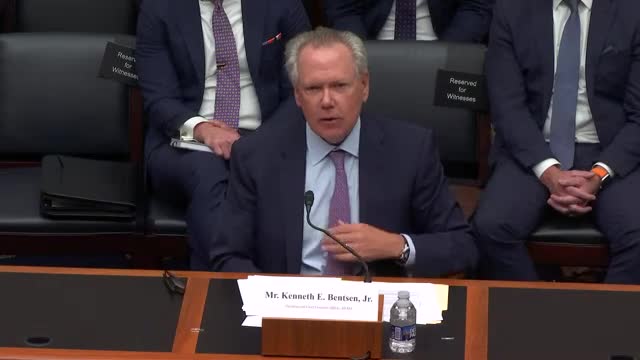Regulators face backlash over proposed banking reforms
September 25, 2024 | Financial Services: House Committee, Standing Committees - House & Senate, Congressional Hearings Compilation
This article was created by AI summarizing key points discussed. AI makes mistakes, so for full details and context, please refer to the video of the full meeting. Please report any errors so we can fix them. Report an error »

In a recent government meeting, discussions centered on the implications of regulatory changes in the banking sector, particularly in light of the Basel 3 endgame proposal and its potential impact on U.S. economic growth. Concerns were raised about the possibility of the U.S. emulating European regulations, which could hinder competitiveness. A Pricewaterhouse study released in June indicated that the original Basel 3 proposal could lead to a decline in U.S. economic growth by as much as 25%, raising alarms about its effects on securitization and capital markets.
Acting Comptroller of the Currency, Michael Hsu, suggested that the recent banking turmoil and the growth of large banks may prompt U.S. banking agencies to consider a new classification for domestic systemically important banks (DSIBs), separate from globally systemically important banks (GSIBs). This move has sparked debate over whether the regulatory \"tailoring\" mandated by Congress in 2018 was responsible for the failures of Silicon Valley Bank (SVB) and Signature Bank. Some officials argued that these failures were due to poor management decisions and rapid interest rate hikes, rather than regulatory easing.
The meeting also highlighted concerns regarding the Basel 3 proposal's treatment of derivatives, which could impose additional costs on hedging activities, potentially acting as a \"capital tax\" on such transactions. This could have significant repercussions for both affiliated transactions and end users in the financial market.
The discussions were further complicated by the recent Supreme Court decision in Loper Bridal, which struck down the Chevron doctrine, suggesting that Congress and federal judges may be better suited to evaluate complex regulatory issues than the regulators themselves. This decision could reshape the regulatory landscape and influence future banking policies.
Acting Comptroller of the Currency, Michael Hsu, suggested that the recent banking turmoil and the growth of large banks may prompt U.S. banking agencies to consider a new classification for domestic systemically important banks (DSIBs), separate from globally systemically important banks (GSIBs). This move has sparked debate over whether the regulatory \"tailoring\" mandated by Congress in 2018 was responsible for the failures of Silicon Valley Bank (SVB) and Signature Bank. Some officials argued that these failures were due to poor management decisions and rapid interest rate hikes, rather than regulatory easing.
The meeting also highlighted concerns regarding the Basel 3 proposal's treatment of derivatives, which could impose additional costs on hedging activities, potentially acting as a \"capital tax\" on such transactions. This could have significant repercussions for both affiliated transactions and end users in the financial market.
The discussions were further complicated by the recent Supreme Court decision in Loper Bridal, which struck down the Chevron doctrine, suggesting that Congress and federal judges may be better suited to evaluate complex regulatory issues than the regulators themselves. This decision could reshape the regulatory landscape and influence future banking policies.
View full meeting
This article is based on a recent meeting—watch the full video and explore the complete transcript for deeper insights into the discussion.
View full meeting